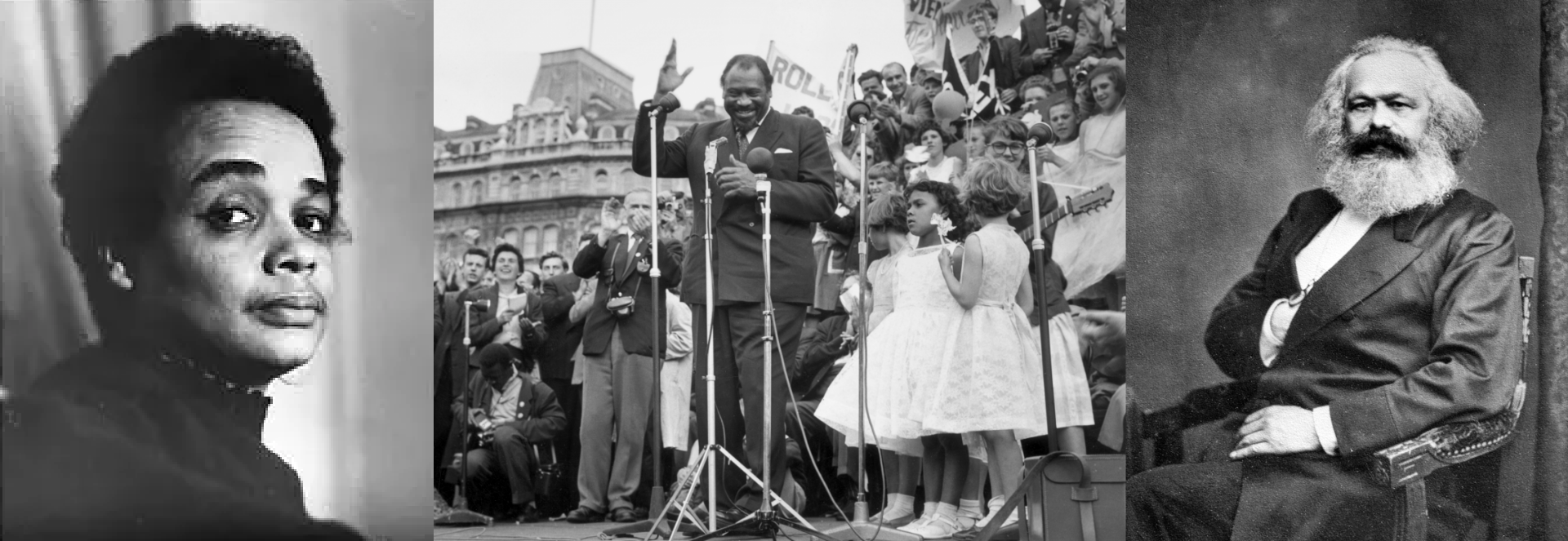Originally published in Working People’s News – April 21, 1991
Thirty-one years ago, Sarah E. Wright, the great novelist and poet, was invited as part of a delegation of African-American writers, to attend a celebration of the revolutionary holiday July 26th, in this case the first celebration in a free Cuba.
A month before her scheduled departure, Sarah and I were married, and so she appealed to the Cuban authorities to allow me to tag along. In a splendid demonstration of romantic internationalism, the request was granted.
Most of that trip has now faded from memory, but some impressions will never be forgotten, and I think they are usefully recalled on this, the 30th anniversary of the US invasion of the Bay of Pigs.
Our trip took place in a period of rapidly rising anti-Cuban belligerence on the part of the US government and its media. We waited for hours at LaGuardia Airport and were finally told to return the next day because the Cuban pilots had defected! Here was illustration, the media trumpeted, of the growing Cuban disenchantment that was manifesting itself in a large exodus from the island.
Our flight the next day was uneventful and when we arrived in Havana it was immediately clear that we had stepped into a new world. We were greeted not by a sullen, but a euphoric people, a people filled with enthusiasm for the life opening up before them.
I remember the night train ride carrying us to the other end of Cuba, to the mountains of Oriente Province, the guerrilla base from which Fidel and his compañeros began their triumphant march to power. At every stop, even into the wee hours of the morning, we were greeted by huge and enthusiastic crowds, spontaneously breaking out into revolutionary chants, who had gathered just to wave at us and cheer us as we passed by their town.
And I remember the scene at the top of the mountain when we and a half million others finally arrived, some halving walked and climbed for days. Half a million, out of a total population (at the time) of six million!
Sarah and I were seated close to Fidel in a reviewing stand, and in front of us were ranks of peasants on horseback. At a signal, one after another would trot up to the stand and be handed from Fidel a deed to the land. Never shall I forget the expressions on their faces of love and gratitude. The US government should have been delighted at this distribution of property to the individual farmers, given their hatred for the collective farm system of Eastern Europe and the Soviet Union–but the US Establishment was outraged. For the campesinos had been given the land through expropriation of the huge US and Cuban land & sugar barons who, of course, kept generations of peasants in a state of absolute wretchedness.
Back in Havana I marveled at the beauty of the new housing going up for the Cubans of modest means, the use of bright colors to give the buildings a cheerful aspect. And I compared that with the drab, prison-like structures typical of our “projects”–but what was most significant was not so much the physical contrast as the contrasting attitudes towards the people. Here in the United States the message was clear: “We shall never let you forget your lowly station. You deserve no better. Be thankful for whatever you get from us.” In Cuba, on the other hand, the poorest people were being treated like kings and queens, if you’ll pardon the expression.
On our last evening in Havana we dined with the head of the Hotel Workers’ Union, an Afro-Cuban, a man who only some months before, under Batista, could not even register as a hotel guest, had he the money, could not use the beaches, for there was a Jim Crow system in Cuba that had developed under the “democratic” influence of US tourist and business interests. Now, the Hotel Workers’ Union, with this Black man at its head, was charged with running all of the Havana hotels.
After 30 years [and to this day], Cuba remains the object of a crippling US boycott and the target of an incessant campaign of destabilization. To the US Establishment in this era of the New World Order, Cuban socialism is an anachronism that must be eliminated as soon as possible. But with the disappearance of socialism elsewhere in the world, with the disappearance of effective centers of resistance to imperialist piracy and aggression, Cuba’s lonely voice on behalf of the exploited and oppressed, the abused and the disinherited must not be stilled. Defense of Cuba today is one of progressive humanity’s most important priorities.





